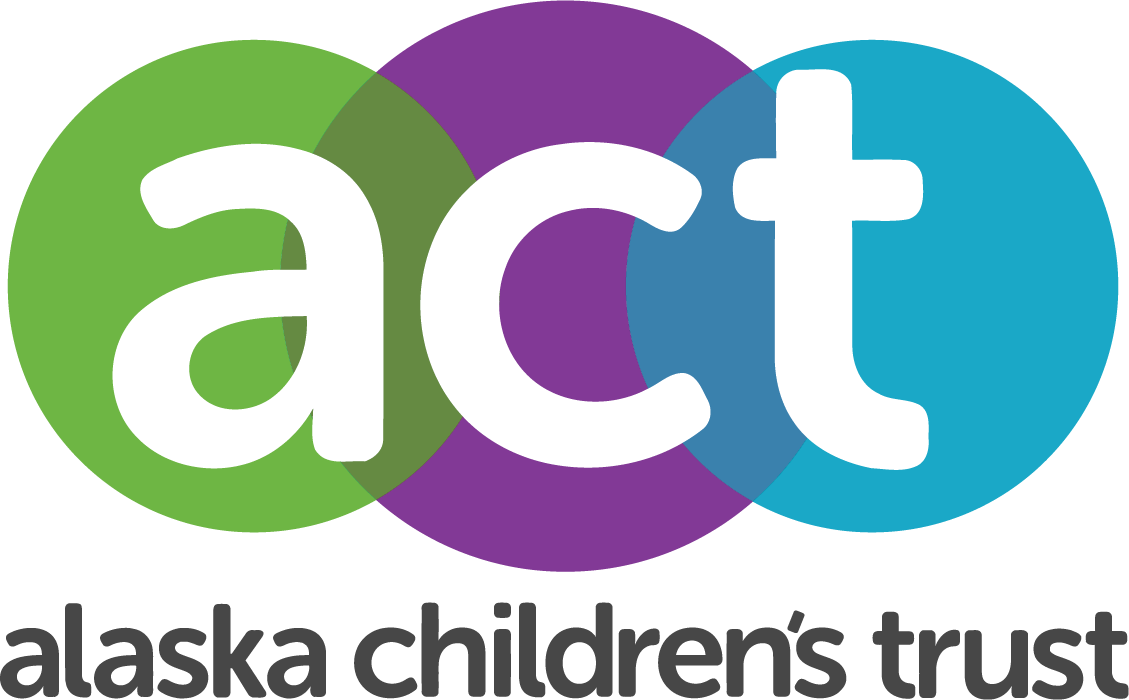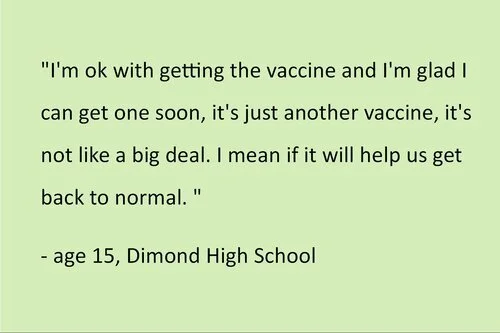Vaccinating our Children: Youth Perspectives and a Pediatrician’s Professional Opinion
By: Joy M. Neyhart, DO, FAAP
BREAKING: On Monday, May 10, the FDA cleared the Pfizer COVID-19 Vaccine for children ages 12-15. Read about it here.
According to an article I read this morning, over 565,000 Americans have died from Covid-19 since the start of the pandemic, leaving an average of 9 people per death grieving that loss. (Ann Finkbeiner, New York Times, April 22, 2021). That is a sad and sobering statistic.
We, and by we I mean just about everyone on the planet, are overwhelmed and fatigued by the losses this pandemic has incurred. Deaths of family members and friends, loss of income, interruptions to education, restrictions on socializing and travel. There is hope, however. Now that safe and effective immunizations are available, we can begin to return to doing things we have not been able to do for over a year.
While I am not a subject matter expert on vaccine development, I do understand the science supporting the safety and efficacy of vaccination to prevent the spread of infections. I do understand that no corners, other than bureaucratic red tape, were cut in the development and testing of the currently available Covid vaccines.
As a board certified pediatrician who has been caring for infants and children for over 20 years, I have not had to diagnose a child with polio, measles, diphtheria, tetanus, mumps, rubella, hepatitis B, or any of several other infections that in the past caused severe illness, lifelong disability or death to infants and children. This is thanks to vaccination programs which are among the most effective types of public health interventions. As Aldous Huxley said: Facts do not cease to exist because they are ignored.
So, when Covid vaccines are approved for children 12 to 16 years of age and then 6 to 12 years of age, should children be vaccinated?
The answer is unequivocally yes, for those children who are safely able to be vaccinated. It is not sufficient for grandparents and other older loved ones to be vaccinated if families plan to safely resume normal interactions. All possible vectors, meaning anyone who could potentially transmit Covid, should be immunized if they are safely able to be immunized. One valid reason for vaccination exemption is severe allergic reaction to previous vaccines. Most children, and indeed most Americans will not experience severe allergic reactions and by getting immunized will help decrease the spread of Covid and end the restrictions that have made life so difficult for everyone. Children need to go to school, play sports, and gather in groups with peers. Parents and other adults need to get back to work and have the ability to socialize. Older adults need to be able to visit with their family members and friends. And we all would appreciate not having to wear a face covering.
Talk to your child's pediatrician about the importance of immunization. She or he would most likely be glad to share their knowledge.
Respectfully submitted,
Joy M. Neyhart, DO, FAAP
Rainforest Pediatric Care
Juneau, Alaska
Gauging Kid Perspectives on Vaccination
How do you feel about getting the vaccine?
I ask my stepdaughter, age 12. In response, she holds out her arm and rolls up her sleeve. After over a year of constant change in school, with our work schedules, and at home, she’s had enough.
But for many of her friends and their parents, the answer isn’t as clear-cut. So I started asking around- I asked her friends, their parents, and my coworkers with children ages 12-15 to gauge how they feel about it.
For our family, we know that it’s important for every member to be vaccinated so that we can protect ourselves and others, and we’re excited to help our daughter get her first shot as soon as they’re available so we can enjoy a safe and healthy summer vacation.






